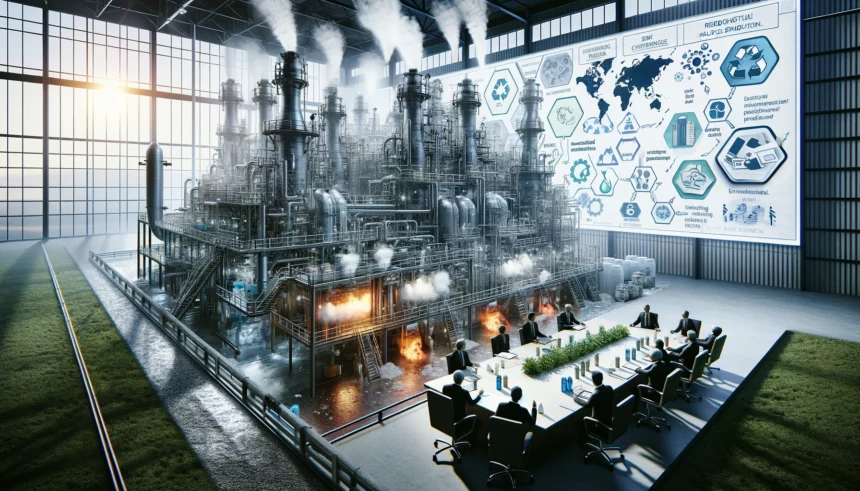In Tigard, Oregon, a modest building called Regenyx aimed to revolutionize plastic recycling. This facility, developed by Agilyx, took in polystyrene—a notoriously hard-to-recycle plastic—and broke it down to its basic components. This process, known as chemical recycling, promised endless reuse, potentially saving the planet from massive waste. Yet, after just five years, Regenyx has closed its doors, sparking a debate about the future of chemical recycling.
The Rise and Fall of Regenyx
Regenyx was designed to handle up to 3,650 tons of plastic waste per year but managed only 3,000 tons over five years. Despite this, Agilyx heralded its technology as “the future.” However, the facility’s closure highlights the ongoing struggles within the chemical recycling industry.
Key Points:
- Potential Capacity vs. Actual Output: Regenyx never reached its full potential, processing less than its annual capacity over five years.
- Closure Framed as Success: Despite its low output, Agilyx claimed the facility’s operations proved the technology’s feasibility.
Chemical Recycling: Hype vs. Reality
Chemical recycling, also known as advanced recycling, is being touted as the solution to the global plastic pollution crisis. However, critics argue it fails to deliver on its promises.
Challenges Facing Chemical Recycling:
- Missed Targets: Many facilities, like Regenyx, fall short of their projected capacities.
- Operational Issues: Reports of fires, spills, and other problems plague these plants.
- Low Transparency: It’s often unclear what percentage of recycled content is used in new products.
- High Energy Consumption: The process requires significant energy, making it costly and environmentally impactful.
Critical Voices:
- Jennifer Congdon, Beyond Plastics: “It’s a PR stunt. It’s an illusion.”
- Taylor Uekert, National Renewable Energy Laboratory: “Mechanical recycling simply uses less energy and chemicals.”
The Big Picture: Plastic Pollution Crisis
Plastic waste is a monumental issue. Only 9% of the world’s plastic is recycled, and in the US, this figure is even lower. Traditional recycling can’t keep up with the ever-growing production of plastics, doubling in the past 20 years.
Environmental Impact:
- Ubiquitous Plastic Waste: From the Arctic to the ocean depths, plastic is everywhere.
- Climate Crisis: Most plastics are made from fossil fuels, driving global oil demand and contributing to climate change.
Industry’s Big Plans
Despite these issues, the plastics industry is investing heavily in chemical recycling.
Major Players:
- Dow: Plans to build multiple facilities, adding 600,000 tons of recycling capacity by 2030.
- Exxon: Pledges to process over 1 billion pounds of plastic waste annually by 2027.
Criticism and Concerns
Experts warn that while chemical recycling has potential, it is far from proving itself as a viable solution.
Main Concerns:
- Energy and Environmental Costs: High energy use and environmental impact are significant drawbacks.
- Transparency Issues: Lack of clarity on the true extent of recycling.
Moving Forward: Real Solutions
For many experts, the key to solving the plastic crisis lies in reducing production and waste generation, not just recycling.
Recommendations:
- Reduce Plastic Production: Focus on cutting down the amount of plastic produced.
- Promote Reuse: Encourage reusable products over single-use plastics.
- Improve Mechanical Recycling: Enhance traditional recycling methods.
- Develop Chemical Recycling Cautiously: Continue exploring chemical recycling but with realistic expectations.
Conclusion:
Chemical recycling holds promise, but it should not distract from the urgent need to reduce plastic production and improve traditional recycling. The plastics industry must face the hard truth: continuing our current level of plastic use is unsustainable. Reducing production and embracing reusable products are crucial steps toward a more sustainable future.
By focusing on these solutions, we can hope to tackle the plastic pollution crisis effectively, ensuring a cleaner and healthier planet for future generations.
















